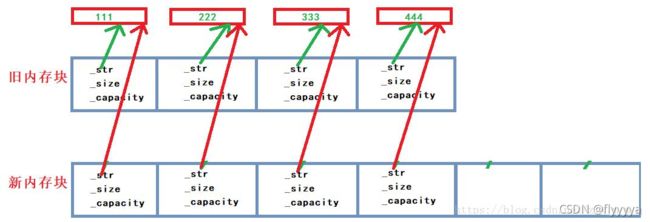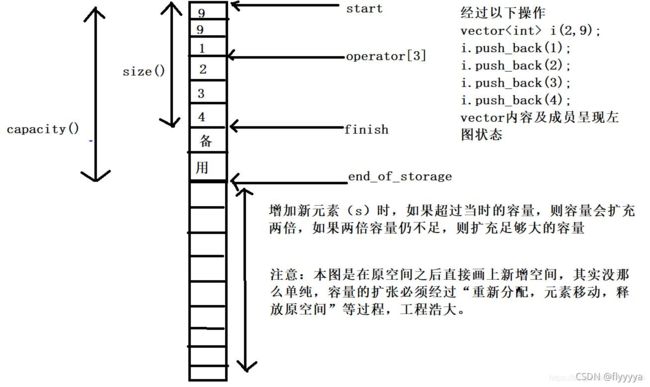- java组件化设计_构建之路—谈谈组件化后端构建和实现
前言这一篇文章,准备了很久,构思了很久,草稿了很久。从个人编程至今,历经了C,C++,Java,到现如今的NodeJS。也后端到前端,再回到后端。更从学校里的学生信息管理系统到大型商业系统构建,是的,我曾一直以为编程也就是如此了,由瀑布模型,敏捷开发,设计模式等等组成的软件工程大致就是如此了。相信可能很多人也会有和我类似的想法,是否也都曾迷茫过?幸运的是,伴随着对前端的接触和深入,云雾散开。前端组
- 【机器学习-08】参数调优宝典:网格搜索与贝叶斯搜索等攻略
云天徽上
机器学习机器学习人工智能
博主简介:曾任某智慧城市类企业算法总监,目前在美国市场的物流公司从事高级算法工程师一职,深耕人工智能领域,精通python数据挖掘、可视化、机器学习等,发表过AI相关的专利并多次在AI类比赛中获奖。CSDN人工智能领域的优质创作者,提供AI相关的技术咨询、项目开发和个性化解决方案等服务,如有需要请站内私信或者联系任意文章底部的的VX名片(ID:xf982831907)博主粉丝群介绍:①群内初中生、
- C++ 内存泄漏排查全攻略:万字实战宝典
TravisBytes
编程问题档案c++开发语言linuxubuntu
写在前面本文定位为“从入门到精通”的深度教程,全文超过12,000字,结合作者多年在Qt框架、游戏引擎、服务器端及高并发协程框架中的一线经验,系统梳理C++内存泄漏的原理、检测、定位与修复方案。示例代码均可在GCC/Clang/MSVC(C++20标准)下编译通过,并特别对Windows、Linux、macOS三大平台的差异化工具与坑点进行说明。欢迎评论区互动交流~目录1.序章:为什么你迟早会遇到
- 【2025B卷专题】华为OD机试2025B卷统一考试题库清单,时间紧张就刷这个
专栏导读本专栏收录于《华为OD机试(JAVA)真题(B卷+A卷+C卷+D卷+E卷)》。刷的越多,抽中的概率越大,私信哪吒,备注华为OD,加入华为OD刷题交流群,每一题都有详细的答题思路、详细的代码注释、3个测试用例、为什么这道题采用XX算法、XX算法的适用场景,发现新题目,随时更新,全天CSDN在线答疑。2025年5月12日,华为官方已经将华为OD机试(A卷)切换为B卷。目前正在考的是B卷,按照华
- 【2025B卷专题】华为OD机试2025B卷统一考试题库清单,时间紧张就刷这个(Python/JS/C/C++)
哪 吒
搬砖工逆袭Java架构师华为odpythonjavascript华为OD机试2025B卷
专栏导读本专栏收录于《华为OD机试真题(Python/JS/C/C++)》。刷的越多,抽中的概率越大,私信哪吒,备注华为OD,加入华为OD刷题交流群,每一题都有详细的答题思路、详细的代码注释、3个测试用例、为什么这道题采用XX算法、XX算法的适用场景,发现新题目,随时更新。2025年5月12日,华为官方已经将华为OD机试(A卷)切换为B卷。目前正在考的是B卷,按照华为OD往常的操作,B卷题目是由往
- 【全网首发】华为OD机试 2025B卷 机考真题库清单(全真题库)含考点说明
哪 吒
搬砖工逆袭Java架构师华为odjava2025B卷华为OD机试
专栏导读本专栏收录于《华为OD机试(JAVA)真题(E卷+D卷+A卷+B卷+C卷)》。刷的越多,抽中的概率越大,私信哪吒,备注华为OD,加入华为OD刷题交流群,每一题都有详细的答题思路、详细的代码注释、3个测试用例、为什么这道题采用XX算法、XX算法的适用场景,发现新题目,随时更新,全天CSDN在线答疑。2025年5月12日,华为官方已经将华为OD机试(A卷)切换为B卷。目前正在考的是B卷,按照华
- 【2025B卷首发】华为OD机试真题+全流程解析+备考攻略+经验分享+Java最佳实现
专栏导读本专栏收录于《华为OD机试(JAVA)真题(E卷+D卷+A卷+B卷+C卷)》。刷的越多,抽中的概率越大,私信哪吒,备注华为OD,加入华为OD刷题交流群,每一题都有详细的答题思路、详细的代码注释、3个测试用例、为什么这道题采用XX算法、XX算法的适用场景,发现新题目,随时更新,全天CSDN在线答疑。2025年5月12日,华为官方已经将华为OD机试(A卷)切换为B卷。目前正在考的是B卷,按照华
- PyTorch 在 Python 自然语言处理中的运用
Python编程之道
Python编程之道pythonpytorch自然语言处理ai
PyTorch在Python自然语言处理中的运用关键词:PyTorch,Python,自然语言处理,深度学习,文本分类,情感分析摘要:本文全面探讨了PyTorch在Python自然语言处理(NLP)领域的运用。首先介绍了相关背景知识,包括目的范围、预期读者等内容。接着详细阐述了核心概念,如词嵌入、循环神经网络等,并给出了相应的原理示意图和流程图。深入讲解了核心算法原理,结合Python代码进行详细
- 后端领域的自然语言处理技术应用
大厂资深架构师
SpringBoot开发实战自然语言处理easyui人工智能ai
后端领域的自然语言处理技术应用关键词:后端领域、自然语言处理、技术应用、算法原理、实际案例摘要:本文聚焦于后端领域中自然语言处理技术的应用。首先介绍了相关背景,包括目的范围、预期读者等。接着阐述核心概念与联系,通过文本示意图和Mermaid流程图展示其原理和架构。详细讲解了核心算法原理并给出Python源代码示例,同时介绍了数学模型和公式。通过项目实战,展示代码实际案例并进行详细解释。分析了自然语
- 【面面俱到/c++】多态的实现(重载、模板、虚函数表、虚基表)
ChongYu重玉
面面俱到/c++面试c++开发语言笔记经验分享面试
目录一分钟速面静态多态(编译时多态)函数重载运算符重载模板动态多态(运行时多态)虚函数虚函数表vtable、虚函数表指针vptr虚基表指针vbptr一分钟速面c++的多态有静态多态(编译时多态)和动态多态(运行时多态)。静态多态主要依靠函数重载、运算符重载和函数模板实现,在编译期间生成不同的函数与类型,由编译器根据函数签名或模板实例化选择正确函数与类型。多态多态主要依靠继承、虚函数与虚函数重写实现
- Camera相机人脸识别系列专题分析之十六:人脸特征检测FFD算法之libcvface_api.so数据结构详细注释解析
一起搞IT吧
数码相机算法数据结构人工智能android图像处理计算机视觉
【关注我,后续持续新增专题博文,谢谢!!!】上一篇我们讲了:这一篇我们开始讲:Camera相机人脸识别系列专题分析之十六:人脸特征检测FFD算法之libcvface_api.so数据结构详细注释解析目录一、libcvface_api.so数据结构详细注释解析一、libcvface_api.so数据结构详细注释解析///@brief人脸信息结构体typedefstructcv_face_t{cv_r
- C++系列(十):面向对象编程终极指南!从封装到多态,彻底掌握类与对象的核心奥秘
傅里叶的耶
C++语言系列(教程+实战)c++类和对象
引言面向对象编程(OOP)是现代软件开发的核心范式,C++通过封装、继承和多态三大特性提供了强大的面向对象能力。这些特性使代码更易维护、扩展和复用,是构建复杂系统的基石。本章将深入探讨C++类和对象的方方面面,从基础封装到高级多态应用,帮助您掌握面向对象编程的精髓。最后,如果大家喜欢我的创作风格,请大家多多关注up主,你们的支持就是我创作最大的动力!如果各位观众老爷觉得我哪些地方需要改进,请一定在
- C++ 工厂模式与抽象工厂:创建对象的灵活设计
海派程序猿
c++javajvm
C++工厂模式与抽象工厂:让对象“流水线”更优雅想象一下,你是一家玩具工厂的老板,主要生产两种玩具:小汽车和积木。最初,你的生产流程很简单,需要什么就直接用new创建什么://生产小汽车Car*myCar=newCar();//生产积木Block*myBlock=newBlock();简单粗暴,效率很高,就像直接从仓库里抓取零件组装一样。但问题也随之而来:耦合度高:生产代码直接依赖于具体的Car和
- Ubuntu 与 Windows 实现文件夹共享
懒羊羊大王呀
LinuxwindowsLinuxSamba文件夹共享
Ubuntu20.04与Windows实现文件夹共享Linux中Samba的下载与配置sudoupdateapt#更新工具包sudoaptinstallsamba#下载Sambasudocp/etc/samba/smb.conf/etc/samba/smb.conf.bak#尽量备份一下sudovim/etc/samba/smb.conf#修改配置文件#添加以下内容,其中[shared]#共享文件
- C++树状数组详解
浩瀚星辰2024
java算法数据结构
C++树状数组深度解析第1章引言:为什么需要树状数组1.1动态序列处理的挑战在现代计算机科学中,我们经常需要处理动态变化的序列数据,这类数据具有以下特点:实时更新:数据点会随时间不断变化频繁查询:需要快速获取特定区间的统计信息大规模数据:通常涉及数百万甚至数十亿个数据点考虑一个实时股票分析系统:需要监控数千只股票的价格变化,并实时计算:某只股票在特定时间段内的平均价格多只股票之间的价格相关性价格波
- 四、Actor-Critic Methods
沈夢昂志
DRL深度强化学习python深度学习
由于在看DRL论文中,很多公式都很难理解。因此最近在学习DRL的基本内容。再此说明,非常推荐B站“王树森老师的DRL强化学习”本文的图表及内容,都是基于王老师课程的后自行理解整理出的内容。目录A.书接上回1、Reinforce算法B.State-ValueFunctionC.PolicyNetWork(Actor)D.ActionValueNetwork(Critic)E.TraintheNeur
- ubuntu miktex安装教程
傅小凤-
ubuntulinuxubuntulinux运维miktex
ubuntumiktex安装教程安装miktex之前必须先安装texlive,否则会无法安装miktex。sudoapt-getinstalltexlive-fullcjk-latexlatex-cjk-chinese然后就按照miktex官网的安装教程一步一步执行就可以了:https://miktex.org/download
- Char Studio 使用入门:高效构建企业级对话系统的实战指南
charles666666
人工智能产品经理语言模型自然语言处理架构
数字化浪潮推动下,企业与用户的交互模式正经历深刻变革,对话系统作为核心交互手段,其重要性日益凸显。然而,众多企业在构建对话系统时,却深陷诸多困境,难以自拔。一、开篇痛点场景:企业对话系统开发的典型困境企业在自行开发对话系统时,往往面临预算超支、周期漫长以及维护成本居高不下等问题。开发团队需要投入大量时间和精力进行底层技术架构的搭建,例如自然语言处理算法的研究、对话逻辑的设计等,这不仅消耗了大量的人
- Leetcode 393. UTF-8 编码验证 C++
Want!
Leetcode393.UTF-8编码验证题目UTF-8中的一个字符可能的长度为1到4字节,遵循以下的规则:对于1字节的字符,字节的第一位设为0,后面7位为这个符号的unicode码。对于n字节的字符(n>1),第一个字节的前n位都设为1,第n+1位设为0,后面字节的前两位一律设为10。剩下的没有提及的二进制位,全部为这个符号的unicode码。这是UTF-8编码的工作方式:Char.number
- AI驱动的个人工作革命:基于DeepSeek构建全场景智能工作助理(含源代码+多应用场景)
AI_DL_CODE
DeepSeek深度应用人工智能DeepSeek个人智能助理LangChain任务自动化知识管理大模型应用
摘要:本文详细阐述基于DeepSeek大模型构建个人工作助理的完整技术方案,通过LangChain实现任务分解、知识检索与工具调用的智能协同。方案融合向量数据库、多模态交互与个性化学习算法,构建涵盖邮件处理、会议管理、文档生成等15大核心工作场景的自动化系统。文中提供可运行代码、完整部署指南及效能测试数据,实现邮件处理效率提升13倍、会议纪要生成时间缩短100%、任务安排错误率降低83%的显著优化
- firecrawl本地docker部署(WSL虚拟机Ubuntu24)
firecrawl本地docker部署下载源码github下载地址部署按照firecrawl目录下SELF_HOST.md文档进行操作即可。本次生成的镜像在后面提供了百度网盘下载。创建.env文件将firecrawl\apps\api.env.example文件拷贝到firecrawl目录下(和docker-compose.yaml同一目录下),修改文件名为.env#=====RequiredEN
- 异物检测的计算机视觉算法技术路线
思绪漂移
计算机视觉算法人工智能
异物检测的计算机视觉算法技术路线在现代智能监测系统中,异物检测有着其必要性和运维重要性,通过计算机视觉算法,可以实时识别各种异常物体,为设备安全运行提供有力保障。本文将介绍异物检测的主要技术路线。一、分类识别适应场景分类识别技术主要适用于已知目标类别的异物检测场景。在运维环境中,这类场景包括:固定区域内的障碍物监测(如轨道区域的石块、工具、动物等)关键部件的异物附着检测(如固定装置上的杂物)安全通
- 基于Clangd索引Linux内核源代码,提供跳转和补全
yann_qu
linux服务器内核LSPVSCodeNeovimVim
基于Clangd索引Linux内核源代码,提供跳转和补全适用于Neovim、Vim、VSCode等支持LSP的编辑器。1操作示例1.1操作环境操作系统:Ubuntu20.04inwsl2编辑器:VSCodeLSP:Clangd内核版本:longterm5.15.1451.2准备工作由于gcc和clang并非完全兼容,使用gcc编译后生成的compile_commands.json中可能包含clan
- 构建你的AI应用开发平台:如何在Ubuntu上使用Docker部署Dify
kaixin_啊啊
商业合作cpolar人工智能ubuntudocker
文章目录前言1.Docker部署Dify2.本地访问Dify3.Ubuntu安装Cpolar4.配置公网地址5.远程访问6.固定Cpolar公网地址7.固定地址访问前言本文主要介绍如何在LinuxUbuntu系统使用Docker快速部署大语言模型应用开发平台Dify,并结合cpolar内网穿透工具实现公网环境远程访问本地Dify服务!Dify是一款开源的大语言模型(LLM)应用开发平台。它融合了后
- PageRank:互联网的马尔可夫链平衡态
大千AI助手
人工智能Python#OTHER人工智能机器学习条件概率贝叶斯PageRank马尔科夫链MC
本文由「大千AI助手」原创发布,专注用真话讲AI,回归技术本质。拒绝神话或妖魔化。搜索「大千AI助手」关注我,一起撕掉过度包装,学习真实的AI技术!PageRank算法本质上是一个在网页图上定义的离散时间马尔可夫链(DTMC),其核心思想是将网页间的链接关系转化为状态转移概率。以下是详细分析:一、马尔可夫链的核心要素在PageRank中的体现马尔可夫链要素PageRank对应数学描述状态空间网页集
- MCMC:高维概率采样的“随机游走”艺术
大千AI助手
人工智能Python#OTHER人工智能数据挖掘机器学习算法MCMC马尔科夫概率论
MCMC(马尔可夫链蒙特卡洛)是一种从复杂概率分布中高效采样的核心算法,它解决了传统采样方法在高维空间中的“维度灾难”问题。以下是其技术本质、关键算法及实践的深度解析:本文由「大千AI助手」原创发布,专注用真话讲AI,回归技术本质。拒绝神话或妖魔化。搜索「大千AI助手」关注我,一起撕掉过度包装,学习真实的AI技术!一、MCMC要解决的核心问题目标:从目标分布(π(x)\pi(\mathbf{x})
- sublime LSP clangd c++提示配置
docker真的爽爆了
c++开发语言sublimetext
sublimeLSPclangdc++提示配置sublimetextLSPclangsc++配置网上99%教程没有提到header如何用c++的标准而不是c的,当然我也搜的脑子冒烟了。功夫不负有心人,最终在github社区找到了将-xc++-header添加到项目根目录下的complie_flags.txt
- LeetCode 刷题:数据结构与算法的实战经验分享
LeetCode刷题:数据结构与算法的实战经验分享关键词:LeetCode、数据结构、算法、刷题经验、实战摘要:本文将围绕LeetCode刷题展开,深入探讨数据结构与算法在实际刷题过程中的应用。通过分享实战经验,帮助读者更好地理解和掌握数据结构与算法知识,提升解题能力。文章将从背景介绍入手,阐述刷题的目的和意义,接着详细解释核心概念,分析它们之间的关系,然后介绍核心算法原理和具体操作步骤,结合数学
- 高压电缆护层电流监测系统的技术实现
李子圆圆
人工智能
目录文章目录概要高精度电流监测的技术实现多级预警机制的构建逻辑极端环境下的稳定运行技术远程运维的技术支撑概要高压电缆护层作为电力传输的关键防护结构,其接地电流的异常变化是判断设备状态的重要指标。TLKS-PLGD高压电缆护层电流监测系统通过传感器技术与智能算法的结合,构建了一套完整的电缆安全监测方案。高精度电流监测的技术实现高精度电流监测的技术实现护层电流监测的核心在于数据采集的精准性。该系统采用
- 构建安全密码存储策略:核心原则与最佳实践
weixin_47233946
信息安全安全
密码是用户身份认证的第一道防线,其存储安全性直接关系到用户隐私和企业信誉。近年来频发的数据泄露事件揭示了密码管理的关键性。本文将深入探讨从加密算法到系统性防护的完整密码存储方案,帮助开发者构建企业级安全防御体系。一、密码存储基本准则绝对禁止明文存储:即使采用数据库加密措施,直接存储用户原始密码仍存在不可逆泄露风险。运维人员权限滥用或备份文件泄露都可能成为突破口。加密≠安全:AES等对称加密存在密钥
- mongodb3.03开启认证
21jhf
mongodb
下载了最新mongodb3.03版本,当使用--auth 参数命令行开启mongodb用户认证时遇到很多问题,现总结如下:
(百度上搜到的基本都是老版本的,看到db.addUser的就是,请忽略)
Windows下我做了一个bat文件,用来启动mongodb,命令行如下:
mongod --dbpath db\data --port 27017 --directoryperdb --logp
- 【Spark103】Task not serializable
bit1129
Serializable
Task not serializable是Spark开发过程最令人头疼的问题之一,这里记录下出现这个问题的两个实例,一个是自己遇到的,另一个是stackoverflow上看到。等有时间了再仔细探究出现Task not serialiazable的各种原因以及出现问题后如何快速定位问题的所在,至少目前阶段碰到此类问题,没有什么章法
1.
package spark.exampl
- 你所熟知的 LRU(最近最少使用)
dalan_123
java
关于LRU这个名词在很多地方或听说,或使用,接下来看下lru缓存回收的实现
1、大体的想法
a、查询出最近最晚使用的项
b、给最近的使用的项做标记
通过使用链表就可以完成这两个操作,关于最近最少使用的项只需要返回链表的尾部;标记最近使用的项,只需要将该项移除并放置到头部,那么难点就出现 你如何能够快速在链表定位对应的该项?
这时候多
- Javascript 跨域
周凡杨
JavaScriptjsonp跨域cross-domain
- linux下安装apache服务器
g21121
apache
安装apache
下载windows版本apache,下载地址:http://httpd.apache.org/download.cgi
1.windows下安装apache
Windows下安装apache比较简单,注意选择路径和端口即可,这里就不再赘述了。 2.linux下安装apache:
下载之后上传到linux的相关目录,这里指定为/home/apach
- FineReport的JS编辑框和URL地址栏语法简介
老A不折腾
finereportweb报表报表软件语法总结
JS编辑框:
1.FineReport的js。
作为一款BS产品,browser端的JavaScript是必不可少的。
FineReport中的js是已经调用了finereport.js的。
大家知道,预览报表时,报表servlet会将cpt模板转为html,在这个html的head头部中会引入FineReport的js,这个finereport.js中包含了许多内置的fun
- 根据STATUS信息对MySQL进行优化
墙头上一根草
status
mysql 查看当前正在执行的操作,即正在执行的sql语句的方法为:
show processlist 命令
mysql> show global status;可以列出MySQL服务器运行各种状态值,我个人较喜欢的用法是show status like '查询值%';一、慢查询mysql> show variab
- 我的spring学习笔记7-Spring的Bean配置文件给Bean定义别名
aijuans
Spring 3
本文介绍如何给Spring的Bean配置文件的Bean定义别名?
原始的
<bean id="business" class="onlyfun.caterpillar.device.Business">
<property name="writer">
<ref b
- 高性能mysql 之 性能剖析
annan211
性能mysqlmysql 性能剖析剖析
1 定义性能优化
mysql服务器性能,此处定义为 响应时间。
在解释性能优化之前,先来消除一个误解,很多人认为,性能优化就是降低cpu的利用率或者减少对资源的使用。
这是一个陷阱。
资源时用来消耗并用来工作的,所以有时候消耗更多的资源能够加快查询速度,保持cpu忙绿,这是必要的。很多时候发现
编译进了新版本的InnoDB之后,cpu利用率上升的很厉害,这并不
- 主外键和索引唯一性约束
百合不是茶
索引唯一性约束主外键约束联机删除
目标;第一步;创建两张表 用户表和文章表
第二步;发表文章
1,建表;
---用户表 BlogUsers
--userID唯一的
--userName
--pwd
--sex
create
- 线程的调度
bijian1013
java多线程thread线程的调度java多线程
1. Java提供一个线程调度程序来监控程序中启动后进入可运行状态的所有线程。线程调度程序按照线程的优先级决定应调度哪些线程来执行。
2. 多数线程的调度是抢占式的(即我想中断程序运行就中断,不需要和将被中断的程序协商)
a)
- 查看日志常用命令
bijian1013
linux命令unix
一.日志查找方法,可以用通配符查某台主机上的所有服务器grep "关键字" /wls/applogs/custom-*/error.log
二.查看日志常用命令1.grep '关键字' error.log:在error.log中搜索'关键字'2.grep -C10 '关键字' error.log:显示关键字前后10行记录3.grep '关键字' error.l
- 【持久化框架MyBatis3一】MyBatis版HelloWorld
bit1129
helloworld
MyBatis这个系列的文章,主要参考《Java Persistence with MyBatis 3》。
样例数据
本文以MySQL数据库为例,建立一个STUDENTS表,插入两条数据,然后进行单表的增删改查
CREATE TABLE STUDENTS
(
stud_id int(11) NOT NULL AUTO_INCREMENT,
- 【Hadoop十五】Hadoop Counter
bit1129
hadoop
1. 只有Map任务的Map Reduce Job
File System Counters
FILE: Number of bytes read=3629530
FILE: Number of bytes written=98312
FILE: Number of read operations=0
FILE: Number of lar
- 解决Tomcat数据连接池无法释放
ronin47
tomcat 连接池 优化
近段时间,公司的检测中心报表系统(SMC)的开发人员时不时找到我,说用户老是出现无法登录的情况。前些日子因为手头上 有Jboss集群的测试工作,发现用户不能登录时,都是在Tomcat中将这个项目Reload一下就好了,不过只是治标而已,因为大概几个小时之后又会 再次出现无法登录的情况。
今天上午,开发人员小毛又找到我,要我协助将这个问题根治一下,拖太久用户难保不投诉。
简单分析了一
- java-75-二叉树两结点的最低共同父结点
bylijinnan
java
import java.util.LinkedList;
import java.util.List;
import ljn.help.*;
public class BTreeLowestParentOfTwoNodes {
public static void main(String[] args) {
/*
* node data is stored in
- 行业垂直搜索引擎网页抓取项目
carlwu
LuceneNutchHeritrixSolr
公司有一个搜索引擎项目,希望各路高人有空来帮忙指导,谢谢!
这是详细需求:
(1) 通过提供的网站地址(大概100-200个网站),网页抓取程序能不断抓取网页和其它类型的文件(如Excel、PDF、Word、ppt及zip类型),并且程序能够根据事先提供的规则,过滤掉不相干的下载内容。
(2) 程序能够搜索这些抓取的内容,并能对这些抓取文件按照油田名进行分类,然后放到服务器不同的目录中。
- [通讯与服务]在总带宽资源没有大幅增加之前,不适宜大幅度降低资费
comsci
资源
降低通讯服务资费,就意味着有更多的用户进入,就意味着通讯服务提供商要接待和服务更多的用户,在总体运维成本没有由于技术升级而大幅下降的情况下,这种降低资费的行为将导致每个用户的平均带宽不断下降,而享受到的服务质量也在下降,这对用户和服务商都是不利的。。。。。。。。
&nbs
- Java时区转换及时间格式
Cwind
java
本文介绍Java API 中 Date, Calendar, TimeZone和DateFormat的使用,以及不同时区时间相互转化的方法和原理。
问题描述:
向处于不同时区的服务器发请求时需要考虑时区转换的问题。譬如,服务器位于东八区(北京时间,GMT+8:00),而身处东四区的用户想要查询当天的销售记录。则需把东四区的“今天”这个时间范围转换为服务器所在时区的时间范围。
- readonly,只读,不可用
dashuaifu
jsjspdisablereadOnlyreadOnly
readOnly 和 readonly 不同,在做js开发时一定要注意函数大小写和jsp黄线的警告!!!我就经历过这么一件事:
使用readOnly在某些浏览器或同一浏览器不同版本有的可以实现“只读”功能,有的就不行,而且函数readOnly有黄线警告!!!就这样被折磨了不短时间!!!(期间使用过disable函数,但是发现disable函数之后后台接收不到前台的的数据!!!)
- LABjs、RequireJS、SeaJS 介绍
dcj3sjt126com
jsWeb
LABjs 的核心是 LAB(Loading and Blocking):Loading 指异步并行加载,Blocking 是指同步等待执行。LABjs 通过优雅的语法(script 和 wait)实现了这两大特性,核心价值是性能优化。LABjs 是一个文件加载器。RequireJS 和 SeaJS 则是模块加载器,倡导的是一种模块化开发理念,核心价值是让 JavaScript 的模块化开发变得更
- [应用结构]入口脚本
dcj3sjt126com
PHPyii2
入口脚本
入口脚本是应用启动流程中的第一环,一个应用(不管是网页应用还是控制台应用)只有一个入口脚本。终端用户的请求通过入口脚本实例化应用并将将请求转发到应用。
Web 应用的入口脚本必须放在终端用户能够访问的目录下,通常命名为 index.php,也可以使用 Web 服务器能定位到的其他名称。
控制台应用的入口脚本一般在应用根目录下命名为 yii(后缀为.php),该文
- haoop shell命令
eksliang
hadoophadoop shell
cat
chgrp
chmod
chown
copyFromLocal
copyToLocal
cp
du
dus
expunge
get
getmerge
ls
lsr
mkdir
movefromLocal
mv
put
rm
rmr
setrep
stat
tail
test
text
- MultiStateView不同的状态下显示不同的界面
gundumw100
android
只要将指定的view放在该控件里面,可以该view在不同的状态下显示不同的界面,这对ListView很有用,比如加载界面,空白界面,错误界面。而且这些见面由你指定布局,非常灵活。
PS:ListView虽然可以设置一个EmptyView,但使用起来不方便,不灵活,有点累赘。
<com.kennyc.view.MultiStateView xmlns:android=&qu
- jQuery实现页面内锚点平滑跳转
ini
JavaScripthtmljqueryhtml5css
平时我们做导航滚动到内容都是通过锚点来做,刷的一下就直接跳到内容了,没有一丝的滚动效果,而且 url 链接最后会有“小尾巴”,就像#keleyi,今天我就介绍一款 jquery 做的滚动的特效,既可以设置滚动速度,又可以在 url 链接上没有“小尾巴”。
效果体验:http://keleyi.com/keleyi/phtml/jqtexiao/37.htmHTML文件代码:
&
- kafka offset迁移
kane_xie
kafka
在早前的kafka版本中(0.8.0),offset是被存储在zookeeper中的。
到当前版本(0.8.2)为止,kafka同时支持offset存储在zookeeper和offset manager(broker)中。
从官方的说明来看,未来offset的zookeeper存储将会被弃用。因此现有的基于kafka的项目如果今后计划保持更新的话,可以考虑在合适
- android > 搭建 cordova 环境
mft8899
android
1 , 安装 node.js
http://nodejs.org
node -v 查看版本
2, 安装 npm
可以先从 https://github.com/isaacs/npm/tags 下载 源码 解压到
- java封装的比较器,比较是否全相同,获取不同字段名字
qifeifei
非常实用的java比较器,贴上代码:
import java.util.HashSet;
import java.util.List;
import java.util.Set;
import net.sf.json.JSONArray;
import net.sf.json.JSONObject;
import net.sf.json.JsonConfig;
i
- 记录一些函数用法
.Aky.
位运算PHP数据库函数IP
高手们照旧忽略。
想弄个全天朝IP段数据库,找了个今天最新更新的国内所有运营商IP段,copy到文件,用文件函数,字符串函数把玩下。分割出startIp和endIp这样格式写入.txt文件,直接用phpmyadmin导入.csv文件的形式导入。(生命在于折腾,也许你们觉得我傻X,直接下载人家弄好的导入不就可以,做自己的菜鸟,让别人去说吧)
当然用到了ip2long()函数把字符串转为整型数
- sublime text 3 rust
wudixiaotie
Sublime Text
1.sublime text 3 => install package => Rust
2.cd ~/.config/sublime-text-3/Packages
3.mkdir rust
4.git clone https://github.com/sp0/rust-style
5.cd rust-style
6.cargo build --release
7.ctrl

